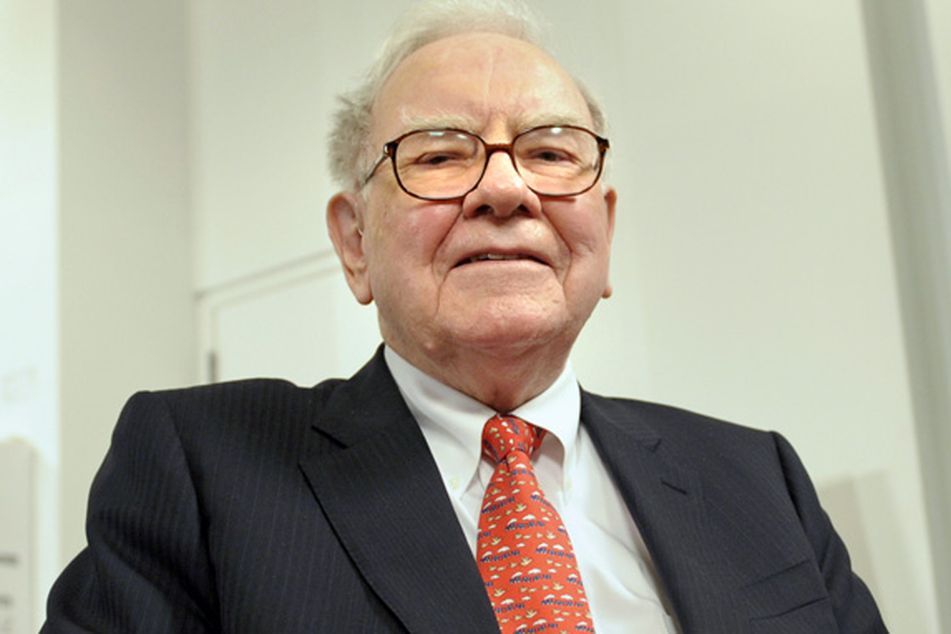Favorite stock of the rich? Not Berkshire
 Along came a SPDR and passed the Buffett by
Along came a SPDR and passed the Buffett by
Apple still the darling of the wealthy; ETF now No. 2
U.S. millionaires would rather match the stock market through an exchange-traded index fund than try to beat it using higher-fee hedge funds or billionaire Warren Buffett’s holding company Berkshire (BRK/A) Hathaway Inc.
The SPDR S&P 500 ETF Trust (SPY) surged to the No. 2 stock pick in an annual survey of the Tiger 21 investing network’s members scheduled to be released today. The security, which tracks the Standard & Poor’s 500 Index (SPX) and is offered by Boston-based State Street Corp. (STT), followed No. 1-ranked Apple Inc. and beat No. 3 Berkshire Hathaway after failing to make the top 10 last year.
“Individual stock-picking is shrinking a little bit,” Michael Sonnenfeldt, founder and chairman of New York-based Tiger 21, said in an interview. “If you want public-equity exposure it’s dramatically cheaper and generally more effective to do it through ETFs.”
Index and exchange-traded funds as a group were a more popular vehicle than equity hedge funds and mutual funds at Tiger 21, a peer group of 202 entrepreneurs, inventors and executives who each have at least $10 million in investable assets and collectively manage $19 billion. Twenty-three percent of members said the generally passive securities, which offer low fees while sacrificing the chance to outperform benchmarks, are their preferred way of equity investing, compared with 19 percent in 2011. Hedge funds fell to 21 percent from 27 percent.
Individual stock picking, still the No. 1 method for participating in equity markets, dropped 7 percentage points to 43 percent. Mutual funds were favored by 13 percent.
Real Estate
Most of Tiger 21’s members have created their own wealth rather than inheriting it, Sonnenfeldt said. Members meet monthly across the U.S. and Canada to share investing ideas, and they pay annual membership fees of $30,000.
A typical member has 23 percent of assets in real estate, 22 percent in stocks, 15 percent in private equity, 13 percent each in fixed income and cash, 10 percent in hedge funds and 1 percent in commodities, according to the survey.
“Members have crept, crawled and walked back to the kinds of investment portfolios they had before 2008,” Sonnenfeldt said. “They still are holding high levels of cash but the other areas such as gold and commodities — that were seen as safety valves for the unexpected — people have been giving up a bit.”
The shift toward ETFs and index funds shows that members see the market stabilizing and acting more normal, Sonnenfeldt said. ETFs are usually linked to indexes and trade like stocks.
Lower Fees
U.S.-domiciled ETFs returned 7.4 percent on average this year through Sept. 30, according to Chicago-based researcher Morningstar Inc. (MORN) They charge an average 0.6 percent annual fee compared with 1.2 percent for the typical mutual fund, Morningstar data show.
Assets in the SPDR S&P 500 ETF totaled $108 billion as of Oct. 24, according to data compiled by Bloomberg. The ETF rose 14 percent this year through yesterday, including dividends, almost identical to the S&P 500 Index, Bloomberg data show.
“For most Tiger 21 members the SPDR ETF is an easy access to the broad market exposure,” said Greg Rogers, a member of the group since 2005, and founder and managing partner of Greenwich, Connecticut-based RayLign Advisory LLC. Rogers, who has 15 percent of his assets in ETFs, doesn’t own the SPDR S&P 500. The 46-year-old uses the securities for access to markets such as emerging economies.
The disappointing performance of some alternative strategies in the past five years has turned members’ attention to investments that are more liquid, easier to understand and transparent, Rogers said in an interview. He’s reduced his holdings in long-short equity hedge funds since the financial crisis, and now has about 15 percent to 20 percent of his assets allocated to them.
Apple Adoration
Apple (AAPL) was the top stock pick for the second straight year. Shares of the Cupertino, California-based company gained 51 percent in 2012.
“It’s one of the few situations where people get to use a company’s products every day and see the most extraordinary momentum of a company in our lifetime,” Sonnenfeldt said of Apple. At least three-quarters of Tiger 21 members have iPhones and most have iPads.
Shares of Omaha, Nebraska-based Berkshire, the millionaires’ No. 1 stock pick two years ago, gained 14 percent this year. The stock trailed the advance of the S&P 500 Index in five of the past 10 years, according to data compiled by Bloomberg.
Core Positions
Berkshire surged in its first 25 years under Buffett as the investor transformed a textile maker into an insurer and placed winning bets on stocks such as Capital Cities/ABC Inc. and Coca- Cola Co. (KO) Growth slowed in the last 15 years as the billionaire directed the company’s earnings toward takeovers in industries such as machine tools, power production and railroads.
“We like the structure of ETFs with the low cost and tax efficiency,” said Greg Peterson, director of investment research at Ballentine Partners LLC, based in Waltham, Massachusetts. The multifamily office, whose clients usually have a net worth of $50 million to $150 million, has used ETFs such as the Vanguard S&P 500 ETF (VOO) and the Vanguard MSCI Emerging Markets ETF (VWO) to build core positions in markets and replaced many active mutual funds with them.
The biggest change in Tiger 21 members’ asset allocation was in private equity, which rose to a record 15 percent from 10 percent in 2011, Sonnenfeldt said. Much of the growth was via direct investments in startups, private companies or personal businesses rather than through funds, he said.
Golub, Elliott
A separate study released Oct. 18 by the Wharton Global Family Alliance, a unit of the University of Pennsylvania’s Wharton School, found that so-called single-family offices also increased their direct allocations to private companies and real estate. The firms, which generally manage the financial affairs of one family clan with at least $100 million, reported an average 11 percent of their holdings in direct investments last year compared with 6 percent in 2009.
Tiger 21’s survey was based on responses from 74 members collected in May, June and July.
Members listed New York-based Golub Capital Inc., which specializes in debt-oriented investments, and Elliott Management Corp., the New York-based hedge fund founded by billionaire Paul Singer, as two of their favorite investment managers. Both firms have been among the top-ranked since the survey started.
Investors looking at ETFs should be aware that not all of them track well-defined, diversified indexes, and they should research how each security is structured before buying, said Peterson of Ballentine Partners.
“There’s a lot of strange ducks out there so you have to be careful,” he said.
–Bloomberg News
Learn more about reprints and licensing for this article.






